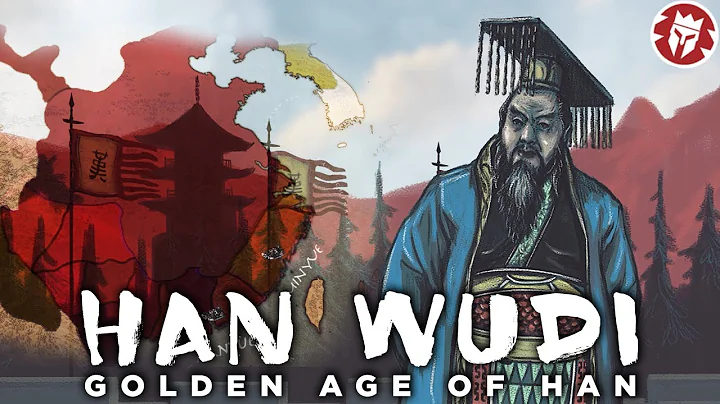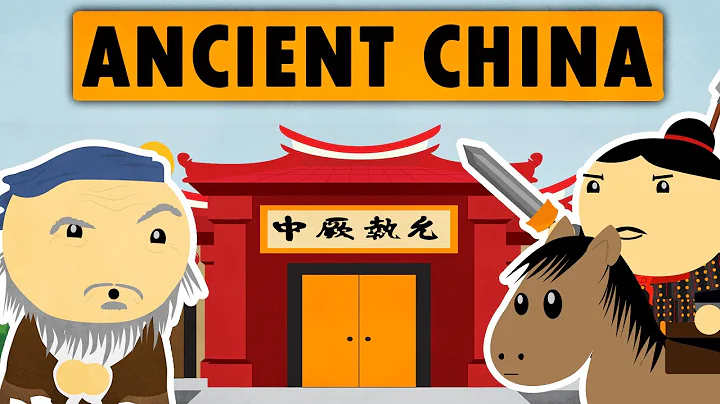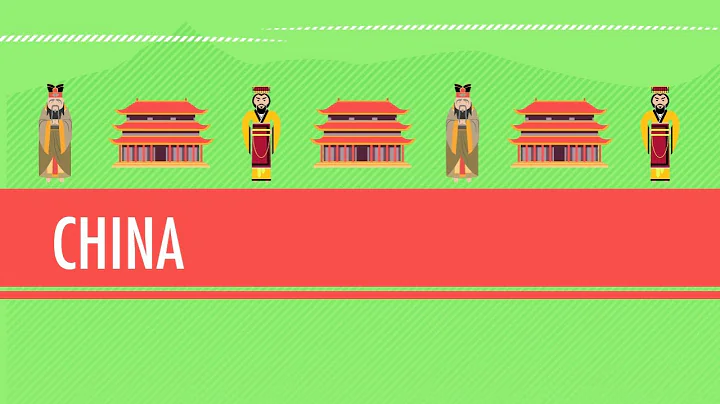During the feudal dynasties of ancient China, many emperors practiced the sacrificial burial system.
Although claimed to be considerate of the people when he was alive, would have such special requirements after his death, which is really hard to understand.
But when did this burial system begin?
In fact, as early as the Shang Dynasty , the burial system had already appeared in our country. At that time, it was not just the emperor who asked for living people to be buried with him after his death. Even after the death of some slave owners, they would also arrange for some slaves to be buried with them.
It was not until later that the emperors discovered that such behavior was a complete waste of the country's population, so they banned the people from following it, while the emperors could continue to retain the right to be buried.

Then as time went by, as people's minds gradually became enlightened, also gained a new understanding of the ancient bad custom of burial, and the burial method of replacing living people with figurines began to appear.
Like Qin Shihuang 's Terracotta Warriors and Horses , is actually his burial army, so that Qin Shihuang will remain an emperor even after his death.
Not only that, if the figurines were used for burial, the emperors did not have to worry about the figurines being damaged.
But if some ancient people used living people for burial, then How long can living people survive in the tomb? The answer to may be beyond your imagination.

Food, air, water
First of all, we should consider the three major survival problems that a living person will face after being buried, that is, food, air and water.
When any point in cannot be satisfied, the person who was buried will naturally die soon.
First of all, in terms of food, it depends on whether the emperors will prepare corresponding food for the victims.
In the eyes of many people, preparing food is unnecessary. Since their fate has been sealed by being buried, why do they still need to prepare food?

In fact, in the eyes of modern people, such behavior is unnecessary. But in the eyes of ancient people, especially in the hearts of those in power, this was already a manifestation of the emperor's generosity.
It is even a great honor to be buried as a living person.
Therefore, if food is prepared, the victims can often persist for about three to seven days before they gradually die.
But if there is no food prepared at all , the victims will naturally die earlier.

It is worth mentioning that in order to extend their own lives, many of the victims would cruelly feed on the corpses of their companions.
But even so, the time that can be persisted is very small. What's more, now that the food problem is solved, what about air and water?
Take water as an example. Modern scientific research shows that if a person does not replenish any water for three consecutive days, he is likely to die.
In the emperor's tomb, if the corresponding water resources were not prepared in advance, the victims would have to wait to die.
When the mouth is dry, even if it is delayed for a period of time with urine, this period of time seems very hasty.

The last thing is the problem of air. Compared with the previous two points, even without any preparation, humans can still persist for several days.
But if there is no air, or if the air circulation is not sufficient, all the victims will die in less than a day.
You must know that every time an emperor is buried, there are more than just one or two people. When all the selected people enter the tomb prepared in advance, the time they can survive can be less than the time it takes to burn an incense stick. It only lasts a few days.
After all, no emperor would specially prepare a "basement" for people to live.

cruel
After understanding the cruelty of time, we might as well look at the horror of human sacrifice.
Why did the emperors choose the system of burial? In fact, they hoped that there would be someone to serve them even after death, so that they could enjoy the same treatment in the " underworld".

For this reason, the emperor was naturally more interested in concubines who were close to him when it came to selecting candidates for burial, and he also brought along some palace maids and eunuchs.
So when the concubines cried heartbreakingly after learning all this, people would wonder whether this was lamenting the death of their husbands , or whether they were lamenting the injustice that they were about to encounter.

The reason why the burial system is called cruel is not only because these living people were killed just because of the emperor's preference.
What's more important is that if the emperor requests it, the concubines will be executed in advance by .
Only in the choice of death penalty, the concubines can choose from Bai Ling and poisonous wine . After all, these are the only two ways to die that can guarantee that you will see the emperor you once served in the most beautiful manner.

Fortunately, during the Kangxi period, under the joint efforts of Kangxi and Yongzheng , this seemingly glorious but actually stupid burial system finally came to an end.
No one of the emperors of later generations would dare to openly disobey the last wishes of the two emperors and ask for a living burial. After death, a large number of grave goods were buried with , which became a standard feature in the tombs of the and rulers of the and Qing dynasties.





















